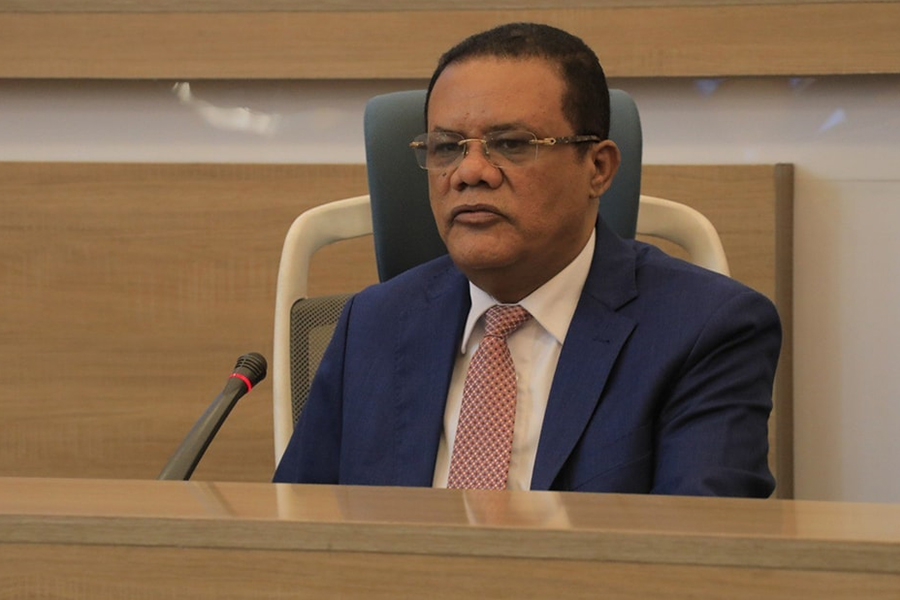
Viewpoints | Aug 03,2019
Sep 20 , 2025
By Kidist Yidnekachew
Informed consent, patient understanding, practical data, these aren't just academic terms, they're human realities. A dissertation that ignores them is just paperwork, one that tackles them becomes a thesis of the heart as well as the head.
I remember, the glow of my laptop was the only thing keeping me company in a dark room, a tiny lighthouse in the storm of my thesis. Nights stretched endlessly, my mind buzzing with possibilities, yet haunted by one relentless worry: the data. Gathering and analysing it felt like trying to climb a mountain in fog, where every step was uncertain, and the path forward was anything but clear.
If I’m being honest, the location I chose for my study was more about convenience than ambition. Many of us, especially first-time degree writers, follow the same pattern. The goal isn’t world-changing impact; it’s finishing the thesis and finally getting that coveted degree. The finish line consumes us. We rarely pause to consider how our work might feed into existing research, let alone improve real-world practice. It becomes a checkbox, a requirement to clear rather than a contribution to knowledge.
This thought resurfaced recently while I was in the hospital. A young anaesthesiology intern introduced himself, kind, earnest, and determined to assess patients’ knowledge about anaesthesia and its effects. The patient in the bed next to me had a fracture. He worked around pharmacists and understood medicine in broad strokes, yet the questionnaire left him flustered. The questions assumed a level of knowledge most patients simply don’t have. He couldn’t answer most of them.
I found myself silently filling in the blanks. The intern asked about epidurals. The patient had never experienced one. I have, two caesarean sections, and know too well the lingering after-effects of anaesthesia. It made me pause. Are we doing research just to get a degree, or are we genuinely trying to solve problems? Is a dissertation a hurdle or a tool to make things better? Especially in medical research, it must be relative. It must have tangible impact. It must aim to improve lives, not just collect dust in a filing cabinet.
This experience also highlighted a broader concern. Many doctors and anaesthesiologists provide minimal explanation about the anaesthesia they administer. They throw around terms like "general" or "local" but rarely explain what that means in practice: which parts of the body will go numb, how it will feel upon waking, or potential side effects. Patients are left to trust blindly, even though the professionals themselves agree that patients deserve full information.
Informed consent is not a signature on a form, it’s a conversation. It’s empowering patients with knowledge, not following a checklist. When research like the young intern’s truly gauges what patients understand, it bridges the gap between medical expertise and human experience. It stops being about ticking boxes and starts being about impact. It becomes a thesis of the heart as well as the head.
We need to shift the mindset. Research should not exist to satisfy graduation requirements; it should exist to make the world better. Every study, every question, every piece of data should serve a purpose beyond the classroom. Every experiment should aim to solve a problem, no matter how small. Because when research has purpose, it stops being an obligation and becomes an opportunity, a chance to leave a mark that matters.
PUBLISHED ON
Sep 20,2025 [ VOL
26 , NO
1325]


Viewpoints | Aug 03,2019

Sunday with Eden | Sep 06,2025

Fortune News | Feb 02,2019

Sunday with Eden | Nov 23,2019

Sunday with Eden | Mar 02,2019

Radar | Mar 25,2023

Sunday with Eden | Jan 12,2019

Radar | May 17,2025

Life Matters | Oct 26,2024

Radar | Nov 21,2018

Photo Gallery | 180428 Views | May 06,2019

Photo Gallery | 170628 Views | Apr 26,2019

Photo Gallery | 161676 Views | Oct 06,2021

My Opinion | 137279 Views | Aug 14,2021

Dec 22 , 2024 . By TIZITA SHEWAFERAW
Charged with transforming colossal state-owned enterprises into modern and competitiv...

Aug 18 , 2024 . By AKSAH ITALO
Although predictable Yonas Zerihun's job in the ride-hailing service is not immune to...

Jul 28 , 2024 . By TIZITA SHEWAFERAW
Unhabitual, perhaps too many, Samuel Gebreyohannes, 38, used to occasionally enjoy a couple of beers at breakfast. However, he recently swit...

Jul 13 , 2024 . By AKSAH ITALO
Investors who rely on tractors, trucks, and field vehicles for commuting, transporting commodities, and f...

Nov 1 , 2025
The National Bank of Ethiopia (NBE) issued a statement two weeks ago that appeared to...

Oct 25 , 2025
The regulatory machinery is on overdrive. In only two years, no fewer than 35 new pro...

Oct 18 , 2025
The political establishment, notably the ruling party and its top brass, has become p...

Oct 11 , 2025
Ladislas Farago, a roving Associated Press (AP) correspondent, arrived in Ethiopia in...

Nov 2 , 2025
The National Bank of Ethiopia (NBE) has scrapped the credit-growth ceiling that had s...

Nov 2 , 2025 . By SURAFEL MULUGETA
The burgeoning data mining industry is struggling with mounting concerns following th...

Nov 2 , 2025 . By YITBAREK GETACHEW
Berhan Bank has chosen a different route in its pursuit of a new headquarters, opting for a transitional building instea...

Nov 2 , 2025 . By BEZAWIT HULUAGER
Nib International Bank S.C. has found itself at the epicentre of a severe governance...